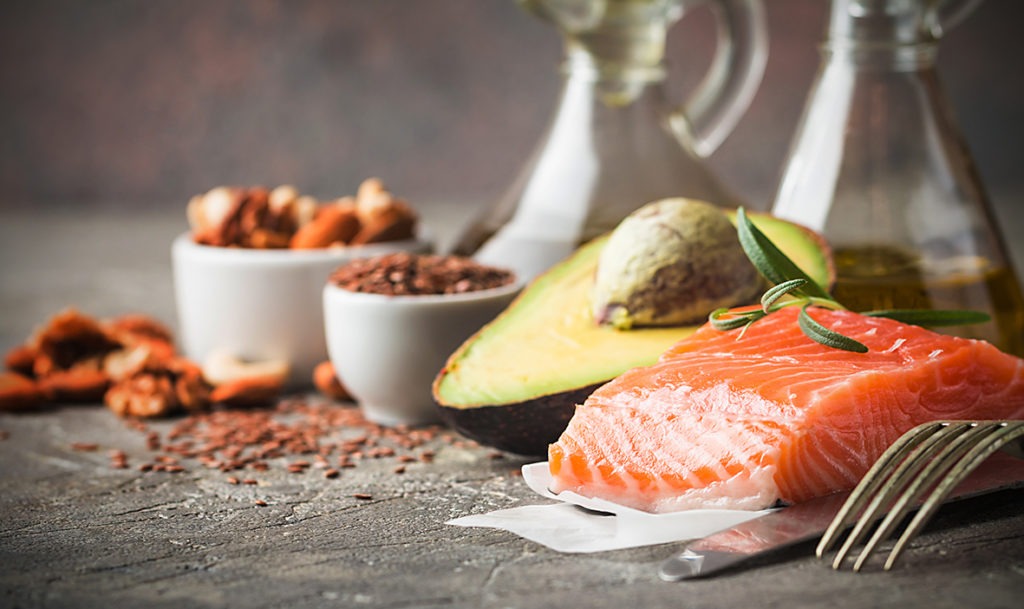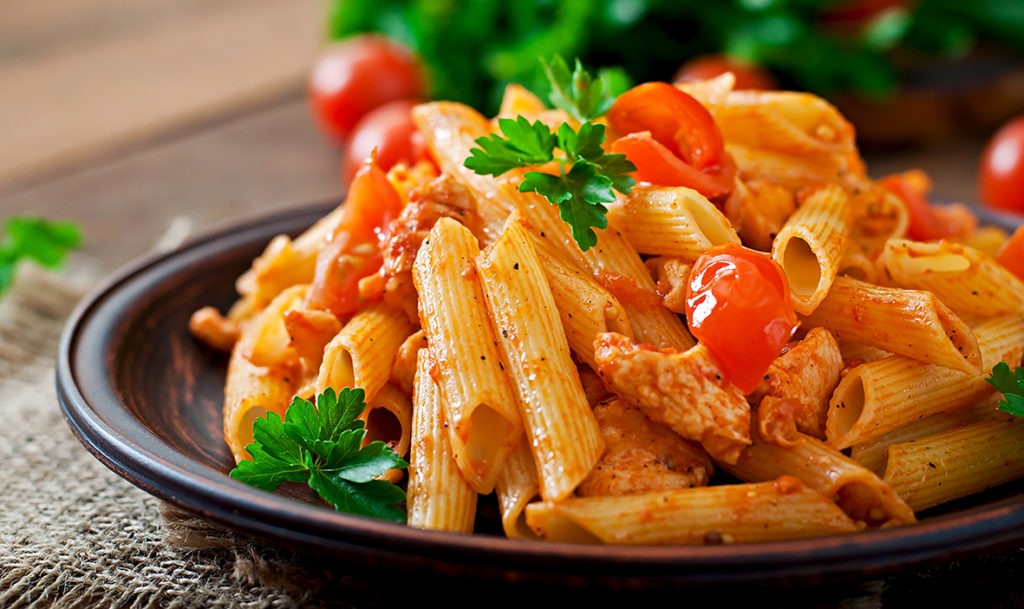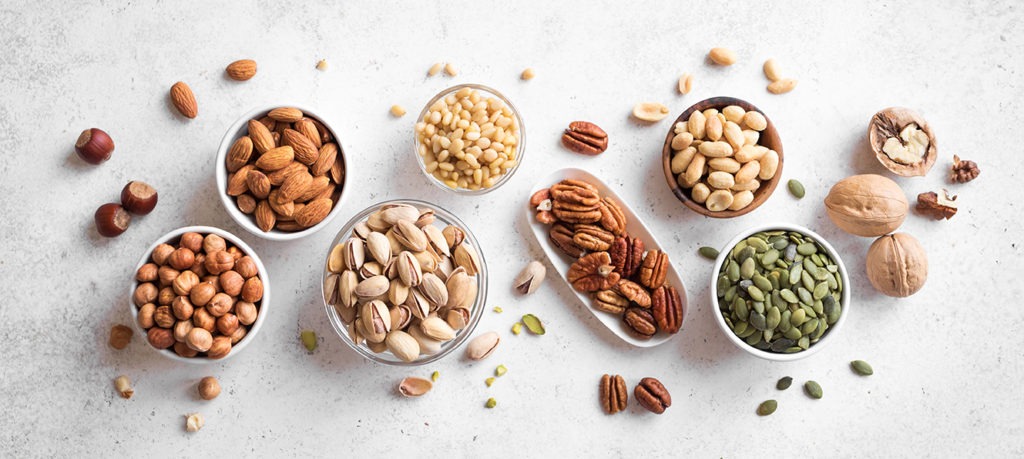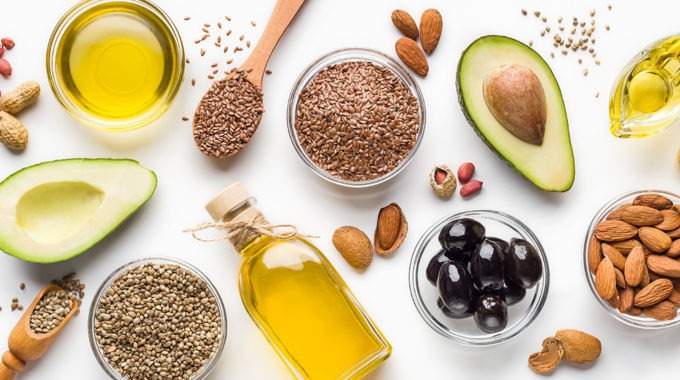Nutrition research says eat fats & carbs
Science has shown us for a while now that fat is not the dietary villain we once believed it to be. Despite this, many people still avoid foods like nuts and full-fat dairy because they think it’s bad for them. But as you’ll see below, new nutrition research has found even more convincing evidence of the benefits of consuming foods like nuts, dairy and olive oil. Even better, one study has found that eating more carbs is good for women’s heart health. Total bonus. So stop avoiding healthy fats and delicious carbs. They’re a goldmine of good nutrition that can help to prevent some of the most common diseases in Australia.

Healthy fats for a healthy weight
New nutrition research from Deakin University has found that it’s not “amount” but “type” of fat that makes a difference to that number on the scales. The study found that those who eat more healthy fats are less likely to gain weight than those who eat unhealthy fats. This is despite the fact that they’re eating the same number of calories.
The study found that adults who ate more saturated fats – foods like butter, red meat and fried foods – were 24 percent more likely to develop obesity. But people who ate a diet higher in unsaturated fats from foods like avocados, nuts and seeds, fish and olive oil were less likely to put on weight as they aged, even though they had a similar calorie intake. The Mediterranean diet is a great example of a diet that includes plenty of healthy fats.

Is whole-fat or low-fat dairy better for kids?
A world-first study from Edith Cowan University has found whole fat dairy is just as good for kids as low fat. The research suggests current public health advice recommending children over the age of two consume low fat dairy products may need to be revised.
In the study, 49 healthy kids aged four to six were randomly allocated to receive either whole-fat or low-fat dairy products over a three-month period. Researchers measured the children’s weight, body composition, blood pressure and blood biomarkers during this time.
Regardless of whether they received whole-fat or low-fat dairy, both groups had a similar calorie intake. Although kids in the low-fat group took in fewer calories and less fat from dairy, they turned to other foods and drinks to make up this difference. The findings also showed no significant differences between the groups’ body weight or heart health.

Moderate carb intake good for women’s hearts
Monash University researchers have found that carb intake, not saturated fat, is related to lower cardiovascular disease (CVD) risk in women. CVD is the leading cause of death in Australian women. Poor diet is recognised as an independent CVD risk factor. It’s also a contributor to other risk factors, such as obesity, diabetes and hypertension.
The study found that in middle-aged women, increasing carb intake was “significantly associated” with reduced odds of CVD. It also lowered other risk factors. A moderate carb intake (41 to 44 percent of total energy intake) was associated with the lowest CVD risk. Also, increasing saturated fat intake wasn’t associated with CVD in women. In fact, higher saturated fat intake was linked with lower odds of diabetes, hypertension and obesity.

Daily nuts and seeds to prevent common disease
Eating a handful of nuts and seeds each day could help prevent non-alcoholic fatty liver disease (NAFLD), new nutrition research has found. The disease, which occurs when fat builds up in the liver, affects around one in 10 Australians. The Deakin University study found that for women, any amount of nuts and seeds appeared to provide a benefit. For men, there was only a benefit when they ate between 15 and 30g a day. Currently, there are no effective medications to treat NAFLD. So eating a moderate amount of nuts and seeds each day could be a simple way to help prevent it. Nuts and seeds are rich in unsaturated fatty acids, fibre, minerals and antioxidants. They also happen to be delicious.









